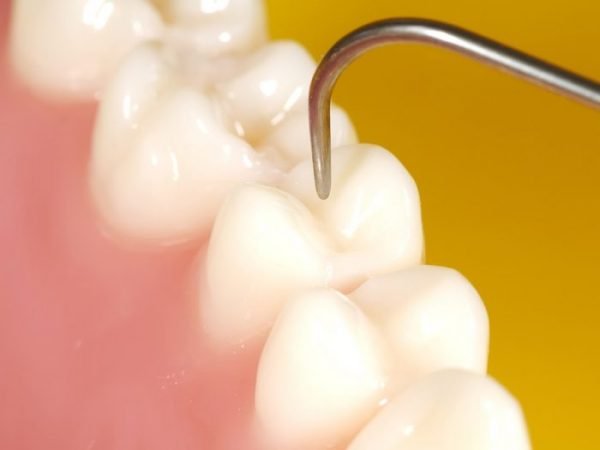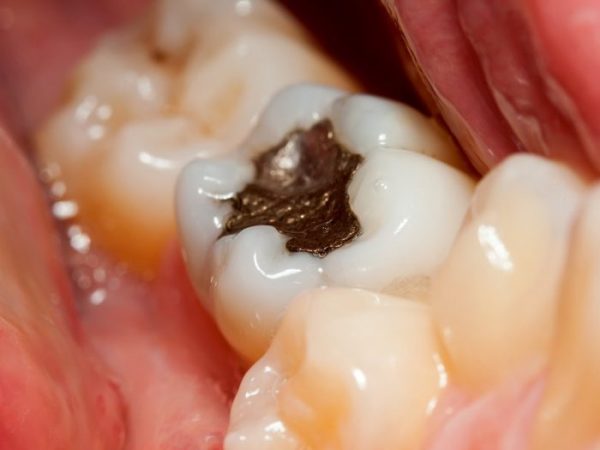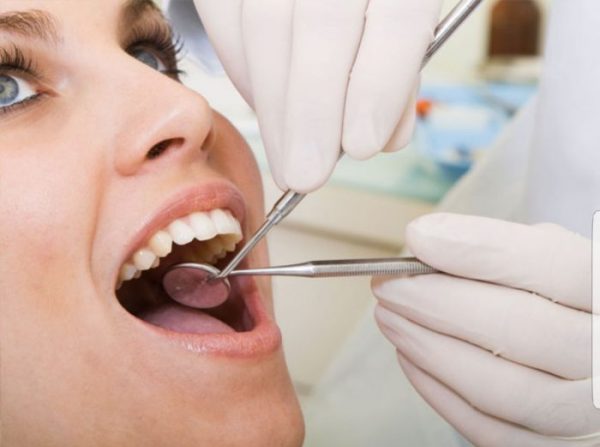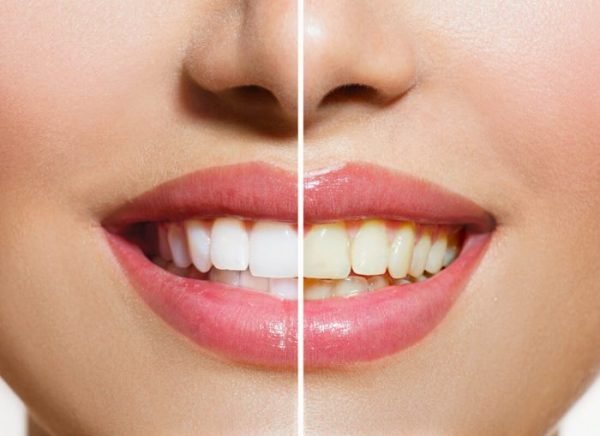ABOUT DENTAL IMPLANT
A dental implant is a small screw-like device that is placed into the jawbone, to replace a natural tooth. The implant acts like a tooth’s roots, and over time the dental implant becomes fused to the natural bone, making it stable.
Dental implants are used on patients who are missing teeth and are looking for a fixed, permanent solution which will enable them to feel confident in their looks, as well as being able to eat and talk comfortably.
Normally, the implant is placed into the jawbone and then allowed to heal (and fuse to the bone or “osseointegrate”) for between 6 weeks to 6 months. This allows the implant to heal without coming under pressure from chewing, and reduces the risk of implant failure. Once the implant is secure, the dentist will take an impression of the mouth in order to create a crown to sit on top of the implant and abutment (the connector in between the two).
The time needed between implant placement and the attachment of the final prosthesis may vary case by case, based on the density of the jawbone and other variables. Some clinics advise that 6 weeks is enough, and other clinics offer new teeth in a day, using systems such as Straumann’s Instant Load dental implants.
A dental implant can be used to support a single tooth, but can also form part of a full mouth restoration. Options like All-on-4 and other Implant-Supported Dental Bridges and Implant-Supported Overdentures use a few strategically placed dental implants to hold a full arch (up to 10 or 12 teeth).
Recommended for
- Patients with missing teeth
- Patients with teeth that cannot be saved and require extraction
TIME REQUIREMENTS
- Average length of stay abroad: 2 – 3 days.
The first trip usually takes a few days. The second trip may take longer, depending on how long it takes for the crown(s) or bridge to be created.
- Number of trips abroad needed: 2.
Usually patients need to travel twice, with a 2 to 6 month break in between. Some clinics offer “instant load” implants which can be done in a single visit.
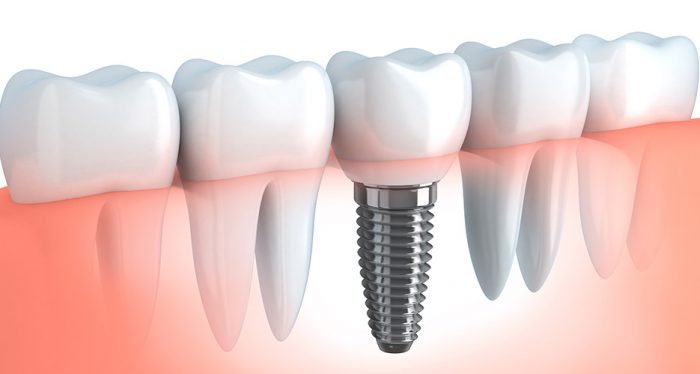
COMPARE DENTAL IMPLANT PRICES AROUND THE WORLD
| Country | Cost |
|---|---|
| United Kingdom | 2395€ |
| Ireland | 1700€ |
| Thailand | 1051€ |
| Spain | 1000€ |
| Hungary | 820€ |
| Mexico | 788€ |
| Poland | 515€ |
HOW TO FIND QUALITY TREATMENT ABROAD
BEFORE DENTAL IMPLANT ABROAD
It is important to have a thorough evaluation before a treatment plan can be created, and patients are asked to send dental X-rays to the dentist planning the treatment. If necessary, these can usually be obtained from a local dentist for a fee. It is important so that the dentist can assess whether or not a bone graft is needed, and how long the overall treatment will take. Minor bone grafting can be done at the same time as implant placement, but more complex bone grafts need time to settle.
HOW IS IT PERFORMED
In order to place the dental implant, the dentist must first remove the gum tissue. Sometimes an incision is made across the peak, and the gum is peeled back to reveal the bone. Some dentists prefer to cut out a small piece of gum tissue, the size of the implant.
The dentist will then use a series of drills to make and enlarge a hole in the jawbone. Once the hole is the right size, the implant is twisted tightly into position. Usually, at this stage, rather than attach a crown, the dentist will attach a temporary healing abutment. This is a cap placed on the dental implant which acts as a placeholder (preventing gum growing over the implant.) The gum is closed around the healing abutment and if needed, the gums will be stitched up.
Once this implant has fused to the bone, the final abutment and crown can be attached.
Materials
Usually the implants are made of titanium (a type of metal), however there are also tooth colored zirconia implants available at some clinics.
Anesthesia
Local anesthetic. General anesthetic may be available for an extra cost.
Procedure duration
A single dental implant surgery takes around 45 minutes, however the procedure can take longer if tooth extractions are performed at the same appointment, or if many implants are placed in one session.
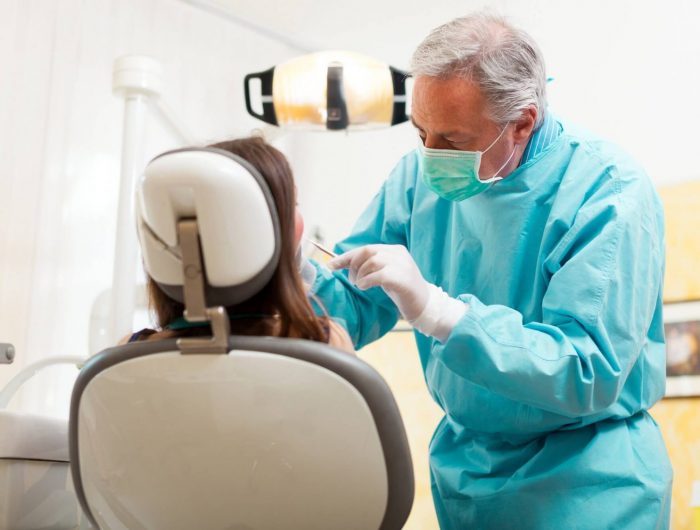
WHAT TO EXPECT AFTER DENTAL IMPLANT
Post procedure care
After the surgery, it is recommended to avoid solid foods or smoking while the gums are healing.
Possible discomfort
Swelling, bruising, pain or light bleeding.
IMPORTANT THINGS TO KNOW ABOUT DENTAL IMPLANT
Success rates
The success of dental implants depends on many factors, such as the position in the jaw and thickness of the bone. Patients should ask their dentist about the likelihood of complications.
Not recommended for
- Pregnant patients
- Suppressed immune system
- Diabetes
- Heavy smokers
- Recent heart attack patients
- Bruxism (teeth grinding)
- Jaw bone loss
- Recent radiation therapy on the head or neck
Potential risks
- Surgical infection
- Failure to osseointegrate (fuse to the bone)
- Nerve damage
- Damage to any surrounding teeth
- Sinus damage
- Loss of jaw bone
FREQUENTLY ASKED QUESTIONS
Dental implants have been proven to last over 40 years with proper care. If you follow your dentists’ instructions, dental implants have an over 95% success rate at 50 years. Cases of rejection are extremely rare, and are usually caused by an allergy to the metal in the implant or an infection. In these cases, non-metal implants may be used. Smokers are advised to quit smoking for at least 8 weeks before implants are placed, as smoking will increase the chances of implant failure.
Other options for tooth restoration, like conventional bridges, are less expensive up-front. However, studies have shown that bridges must be replaced every 10 years or so, whereas dental implants will last much longer and require less care. In the long run, dental implants are a much more cost-effective option. They also have a higher success rate and patients tend to be much happier with the results.
Dental implants are usually performed under local anesthesia, so the area will be numb and you shouldn’t feel anything. In some cases, general anesthesia is available so you can sleep through the procedure, but its usually much more expensive. Afterward, you may have some mild pain or discomfort, which can usually be taken care of with over the counter pain relievers such as ibuprofen.
Your dentist will probably recommend that you avoid chewing with the implant for a short time while it heals and integrates into your jawbone. In general, it’s recommended that if you feel discomfort while chewing with it, it might need more time to heal.
Dental implants are considered the best option for tooth restoration, and so manufacturers set their prices very high because of the extensive research and development that goes into their products. The procedure also requires special training to insert implants, so you are paying for specialist care.
Patients in the UK can only get dental implants through the NHS if there is a medical need for them. Often, your only options on the NHS will be less-expensive removable dentures or a conventional bridge.
If you need a bone graft before implants are placed, it can take up to 6 months for the new bone to grow. After the implants are completed, it may take up to 14 days before you can chew normally. Your doctor will be able to give more details for your unique situation.
Some dentists advise against using them, as the success rate is higher if the implant is given several weeks or months to fuse to the bone, before supporting the prosthetic teeth. However, depending on the quality of the jawbone, and the position of the tooth, it can be an option. There are also measures that can be taken to improve the success of the instant load implant, such as not chewing food on the implant for several weeks.
Yes. It is possible, and clinics like Costa Rica Bluezone offer this. The advantage is that the treatment can be finished in one trip abroad, and the patient will have esthetic results straight away. The disadvantage is that in order to avoid putting pressure on the implants, the patient is advised to follow a liquid diet for one month.


